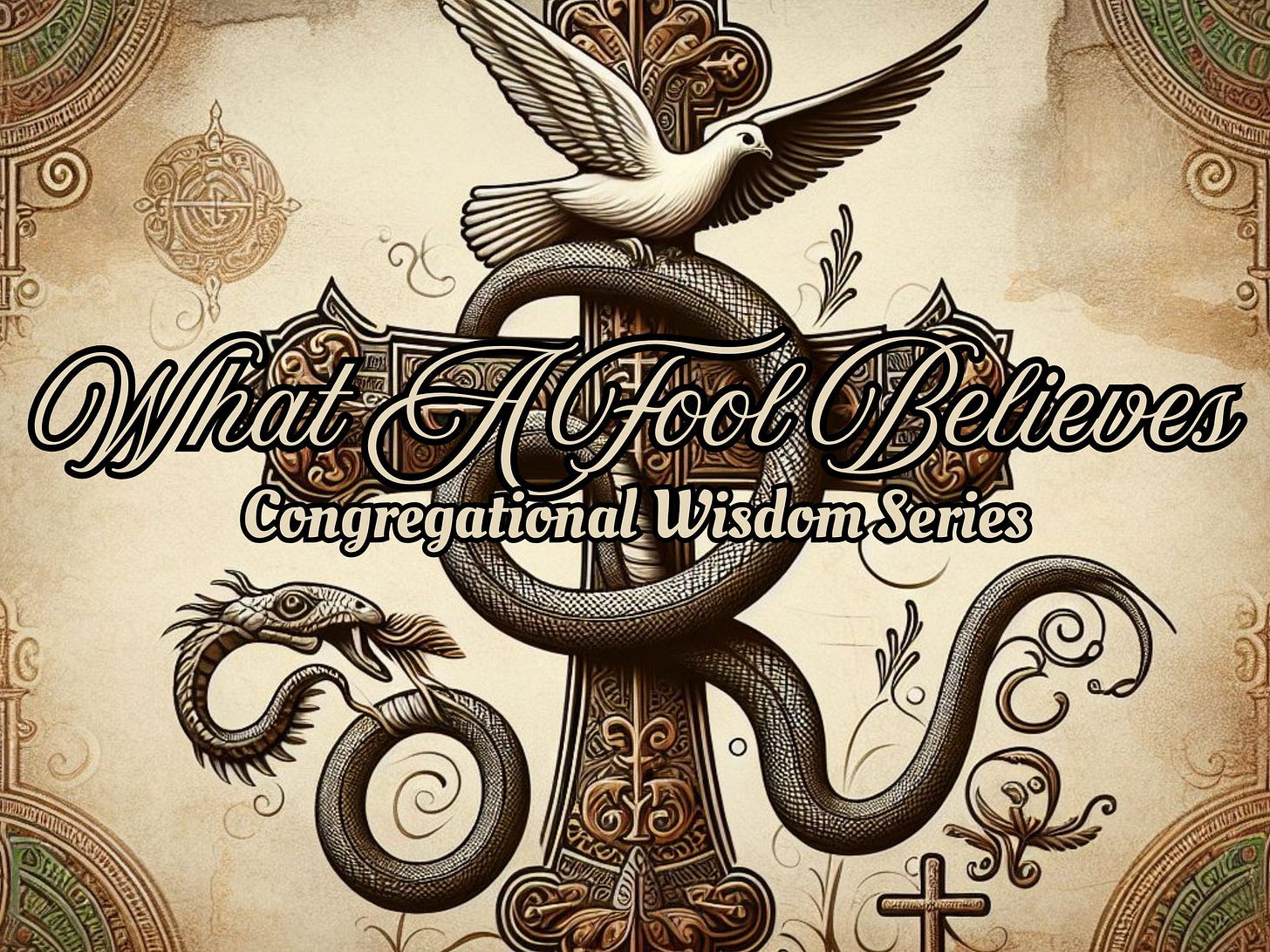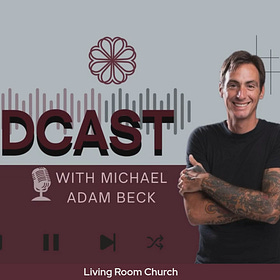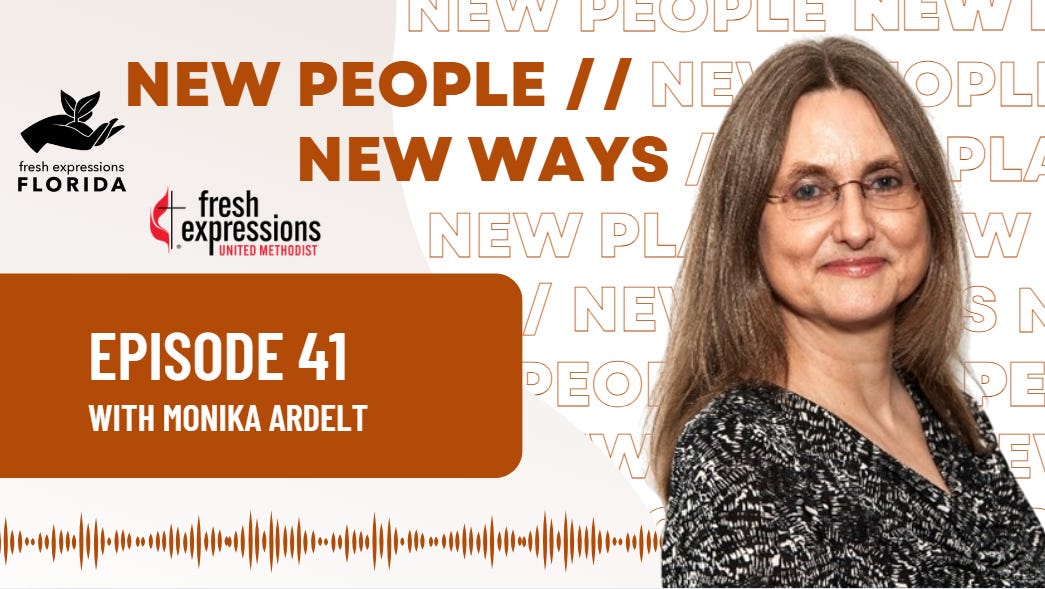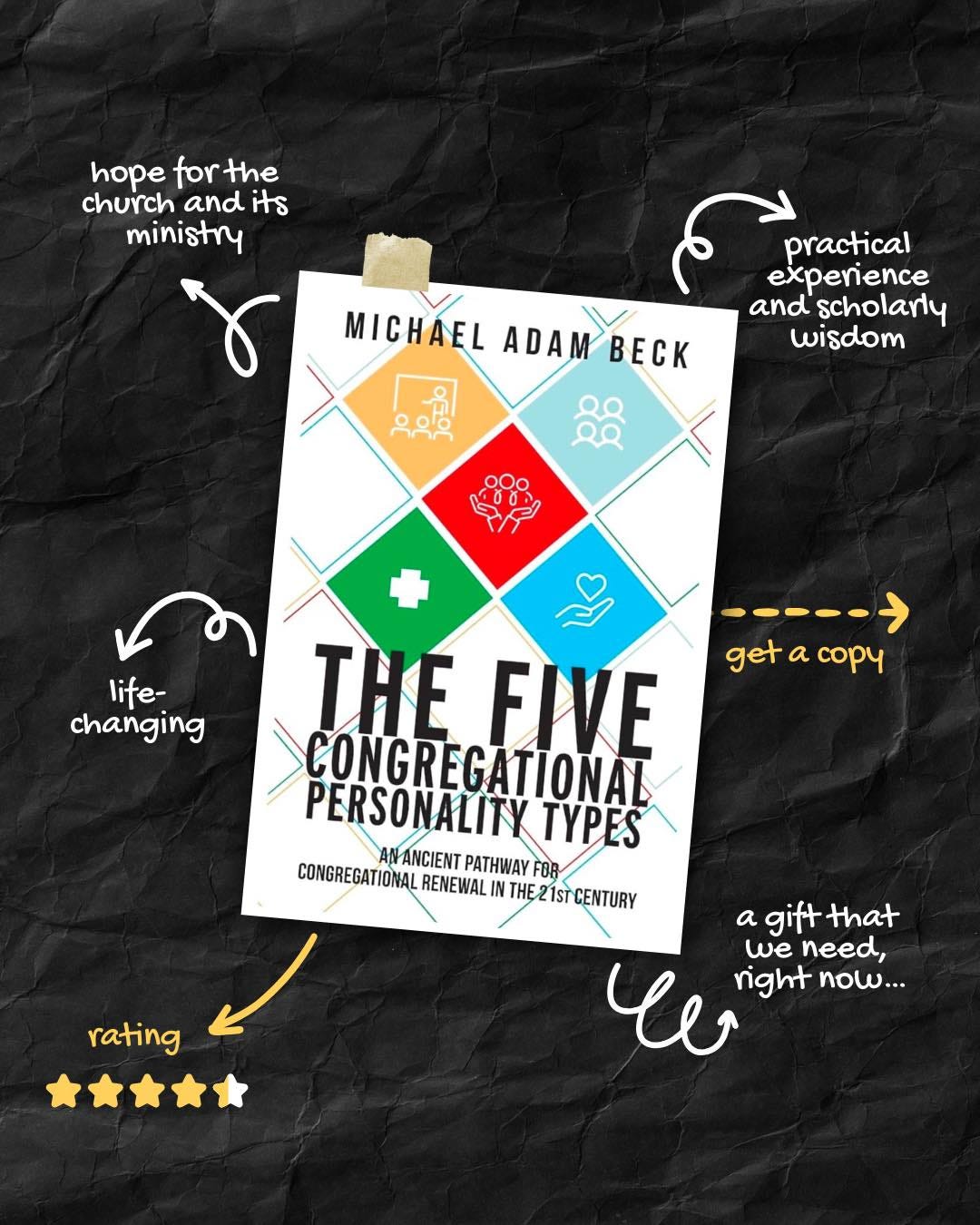Rapid Unscheduled Disassembly: Reawakening the Learning Church through Failing Forward
What a Fool Believes - Part 5
For some, the mission to go to Mars and become a multiplanetary species is a pipedream—an unattainable fantasy. For others, it’s not only possible but essential. As a species wholly dependent on a single, increasingly fragile planet, marked by climate disruption, political instability, and escalating global conflict, our survival may depend on becoming an interplanetary people.
For those invested in this mission, advances in rocket propulsion and space travel are among humanity’s most fitting and urgent endeavors. After all, we need to figure out how to move people across the 127,943,020 miles between Earth and Mars, carrying with us the technology and resources needed to establish a permanent colony.
Accomplishing this will require risk, experimentation, and a failing-forward mindset.
In recent months, we’ve watched multiple rockets explode, fiery fragments raining down over the Gulf of Mexico and the Atlantic Ocean. Just last week, another attempt met a similar fate. According to SpaceX, the rocket “experienced a major anomaly while on a test stand at Starbase,” during preparations for its tenth flight test. Thankfully, all personnel were safe and accounted for, and the safety perimeter held.
In rocket science, this isn’t a disaster… it’s data collection. The technical term for such an event? “Rapid unscheduled disassembly.” That’s a fancy way of saying… it blew up.
But each failure brings engineers closer to success. They learn what went wrong, how the heat shield performed, which stress points buckled, what systems failed and why. Every explosion becomes an opportunity to iterate, redesign, and improve.
This is how we will get to Mars, not through executing the perfect plan, but through persistent learning through failure.
Could the church benefit from a similar posture?
Because let’s be honest: things blow up in ministry too. Projects collapse. Leaders burn out. Churches split. Communities that once felt alive suddenly go cold. And too often, we treat these moments as shameful failures, evidence of bad leadership or weak faith.
But what if we adopted a more experimental posture? What if we created a culture that embraced spiritual innovation with the same “fail fast, learn fast” energy that SpaceX brings to the launchpad?
Of course, experimentation in church life must be grounded in a deeper ethic: “fail fast, learn fast” must also mean “do no harm.” We’re not dealing with machinery; we’re dealing with human lives. Safety, care, and accountability matter. But so does courage. So does risk. So does holy experimentation in the name and way of Jesus.
And if that’s true, we don’t need metrics that punish failure and reward preservation.
We need metrics that support reflection, foster creativity, and encourage growth… even when stuff blows up.
Failure as Formation: Peter’s Path to Leadership
One of the most iconic failures in Scripture comes from the disciple Peter.
Just hours after pledging loyalty to Jesus, Peter denies even knowing Him… not once, but three times (Luke 22:54–62). It’s a devastating collapse of courage and character. And yet, after the resurrection, Jesus doesn’t discard Peter. He doesn’t tally Peter’s betrayal as a disqualifier.
Instead, Jesus cooks him breakfast.
He asks him three simple but piercing questions: “Do you love me?” Then, Jesus commissions Peter to “feed my sheep” (John 21). This failure didn’t remove Peter from leadership… it formed him for it.
The rest of Peter’s life, and much of the early church story in Acts, is a case study in failing forward. The disciples misunderstand, misstep, disagree, and reorganize. They confront their own cultural bias, rework their systems, and slowly learn how to embody the Spirit-led movement Jesus began.
Failure was not a detour—it was the curriculum.
Counting Metrics vs. Learning Metrics
Peter Senge, in his seminal work The Fifth Discipline, describes the church’s corporate cousin, the “learning organization,” as one that continually expands its capacity to create its future. Central to this idea is the need to confront and evolve our mental models, the deep-seated assumptions, generalizations, and images that influence how we understand the world and take action.
In churches, as in businesses, outdated mental models often go unchallenged, especially when they’re encoded in institutional metrics. When we primarily measure attendance and giving, we reinforce a model of success that leaves little room for curiosity, experimentation, or Spirit-led disruption. Becoming a learning church requires not just new metrics, but new mindsets—willingness to unlearn, relearn, and trust that the journey of transformation is worth the mess.
Traditional church metrics are what we might call counting metrics. They tell us what happened, but not why. They tally outcomes but miss the stories of risk, reflection, and renewal that mark true spiritual health.
By contrast, learning metrics help us evaluate what we tried, what we learned, and what God might be revealing through it all.
“Metrics should foster reflection, not surveillance. Relationship, not control.”
—Mapping the Metrics Participant
The problem isn’t that we count things, it’s that we only count things that are easy to measure. When a new initiative struggles or fails, the current spreadsheet offers no encouragement to try again. The system favors safety. Maintenance. Institutional self-preservation.
But the gospel calls us to risk, to love boldly, and sometimes… to crash.
Reawakening the Learning Church
The sociologist-anthropologist Clifford Geertz famously defined culture as “a system of inherited conceptions expressed in symbolic forms by means of which people communicate, perpetuate, and develop their knowledge about and attitudes toward life” (Geertz, The Interpretation of Cultures, 1973). In other words, culture is the web of meaning we inhabit. Geertz argued that if we want to understand what people do, we have to understand what those actions mean within a given community.
Consider the difference between a wink and a blink. A blink is a rapid, involuntary or voluntary closure and reopening of the eyelids. A wink is a deliberate closing and opening of one eye, typically used as a nonverbal gesture. Unlike a blink (which involves both eyes and is usually involuntary), a wink is intentional and often conveys a specific message or emotion, such as playfulness or flirtation, a shared secret or inside joke, reassurance, or a signal of complicity. Culturally, the meaning of a wink can vary, so context is key to interpreting it accurately.
A wink is not a blink, it’s a signal, a story, a symbol. That’s why shifting church metrics without shifting church culture is a dead-end strategy. You can’t just change the spreadsheet if you don’t change the story, and you can’t change the story if you don’t change the spreadsheet. If our inherited culture tells us that success is bigger buildings and better budgets, no amount of technical tinkering will lead to transformation. We need thick description. We need to dig into the rituals, assumptions, and mental models that drive behavior—because those, more than anything else, shape what we believe matters.
Maintenance Is Not the Mission
·New episode of Compassion Matters! How do we measure what really matters in the church?
What would happen if we began measuring:
Experiments launched rather than just programs maintained?
Relationships nurtured rather than seats filled?
Laity empowered to serve as priests in the ordinary domains of life rather than doing time on internal committees?
Stories shared to accompany the stats reported?
Grace in motion rather than legalistic renderings of perfection?
Number of contributors to deep spiritual dialogues rather than the quality of a single preacher’s polished monologue?
What if the church became a space where failure wasn’t feared but framed as faithfulness-in-progress?
The Mapping the Metrics report captures this hunger:
“We need accountability systems that reward experimentation, not just outcomes.”
—Mapping the Metrics Participant
Faithful Failures and Holy Iterations
Peter’s greatest failure became the foundation for his calling. The church Jesus builds isn’t a flawless institution, it’s a Spirit-led learning community.
The book of Acts isn’t a tale of strategic success, it’s a story of improvisation, correction, conflict, and courageous adaptation. Whether it’s the disciples confronting their ethnocentrism (Acts 10), or the Jerusalem Council rethinking requirements (Acts 15), the early church was marked by humble iteration.
They didn’t always get it right. They frequently experienced rapid unscheduled disassembly. But they kept going.
Just like humanity’s mission to Mars is shaped by different mental models, some who see failure as fatal, others who see it as fuel for progress, the church, too, is caught in a tension of competing visions. Some view the mission of the church as preserving institutions, filling pews, and balancing budgets. Others see it as participating in God’s ongoing work of healing, justice, and reconciliation in the world, wherever and however that happens. If we operate from the former model, we’ll design metrics that reward compliance, conformity, and control. But if we embrace the latter, we’ll need learning metrics, tools that help us reflect, adapt, and grow when things don’t go according to plan.
The book of Acts is a story of failing forward… imperfect people, led by the Spirit, rethinking the mission in real time. Maybe it’s time we gave ourselves and our churches permission to do the same. Not every launch has to be successful to be faithful. What matters is that we keep showing up, keep learning, keep reaching for the stars, and “do no harm.”
Learning Metrics for a Learning Church
The church doesn’t need more ways to count, it needs metrics that help us learn.
What if we expected some of our fresh expressions to explode—not as failures, but as data-rich disassemblies that would help us refine our withness?
What if the spreadsheet wasn’t the final word?
What if love—not efficiency—was the true indicator of vitality?
If we are not experiencing regular “rapid unscheduled disassembly,” is it possible we are not being faithful to the mission?
Let’s be holy engineers.
Let’s cultivate churches that can fail forward.
Let’s replace counting metrics with learning ones.
Let’s measure what love makes possible.
What have you learned from a ministry failure?
What metrics could help your church reflect and adapt more wisely?
Drop your reflections below so we can harvest the wisdom together.
Let’s continue the conversation. Share your reflections below or in the Congregational Wisdom Circle Facebook group. What metrics are you using in your church? What do you wish we were measuring instead?
The Science of Wisdom
In this episode, Michael and Jessica sit down with Dr. Monika Ardelt, a leading wisdom scholar, for a deep dive into the science of wisdom—and why it matters now more than ever. We explore the 3D Wisdom Scale, wisdom and aging, bad theology, organizational health, and how churches can actually cultivate wisdom in a rapidly changing world. If you care about the future of the church, leadership, or just becoming a wiser human, you do not want to miss this one.
Altogether Now: Seven Generations and Beyond
February 26–28, 2026 | Ocala, Florida
What if the future of the church wasn’t sealed behind stained glass, but planted in dog parks, gyms, tattoo parlors, and recovery circles? Join us in Ocala—ground zero for the Fresh Expressions movement in the U.S.—as we dream, co-create, and become the church the world needs.
Let’s gather across generations, cultures, and denominations to embody love, justice, and grace—altogether now.
Register now—pay what you can.
#FXUM26 #FreshExpressions #AltogetherNow #SevenGenerations #ChurchReimagined
The Five Congregational Personality Types
Are you a pastor navigating a new appointment? A congregation preparing to receive a new leader? Or just in a ministry season that calls for a fresh start? While there are plenty of personality assessments out there, there’s only ONE designed specifically for churches.
Every congregation has a distinct personality type. That personality can keep a church stuck—or propel it into growth and maturity, depending on how it’s understood and used. Rooted in psychosocial theory and biblical archetypes, this model will help you uncover:
-Which of the five personality types best describes your congregation
-How to nurture your church’s unique culture and strengths
-How to recognize the “shadow side” of your type—and transform it into a strength
-Your church’s #1 faithfulness strategy and clear, actionable next steps.
Get your copy and join the movement today!












In recent meetings, we’ve repeatedly brought up a ministry failure but what we’ve needed to do is talk about what was learned in a failing-forward way. I’ll definitely share this with the group.
The failure mindset is not an easy sell in the black church. Sadly, it really does restrict the possibilities. This is a helpful piece for group reflection.